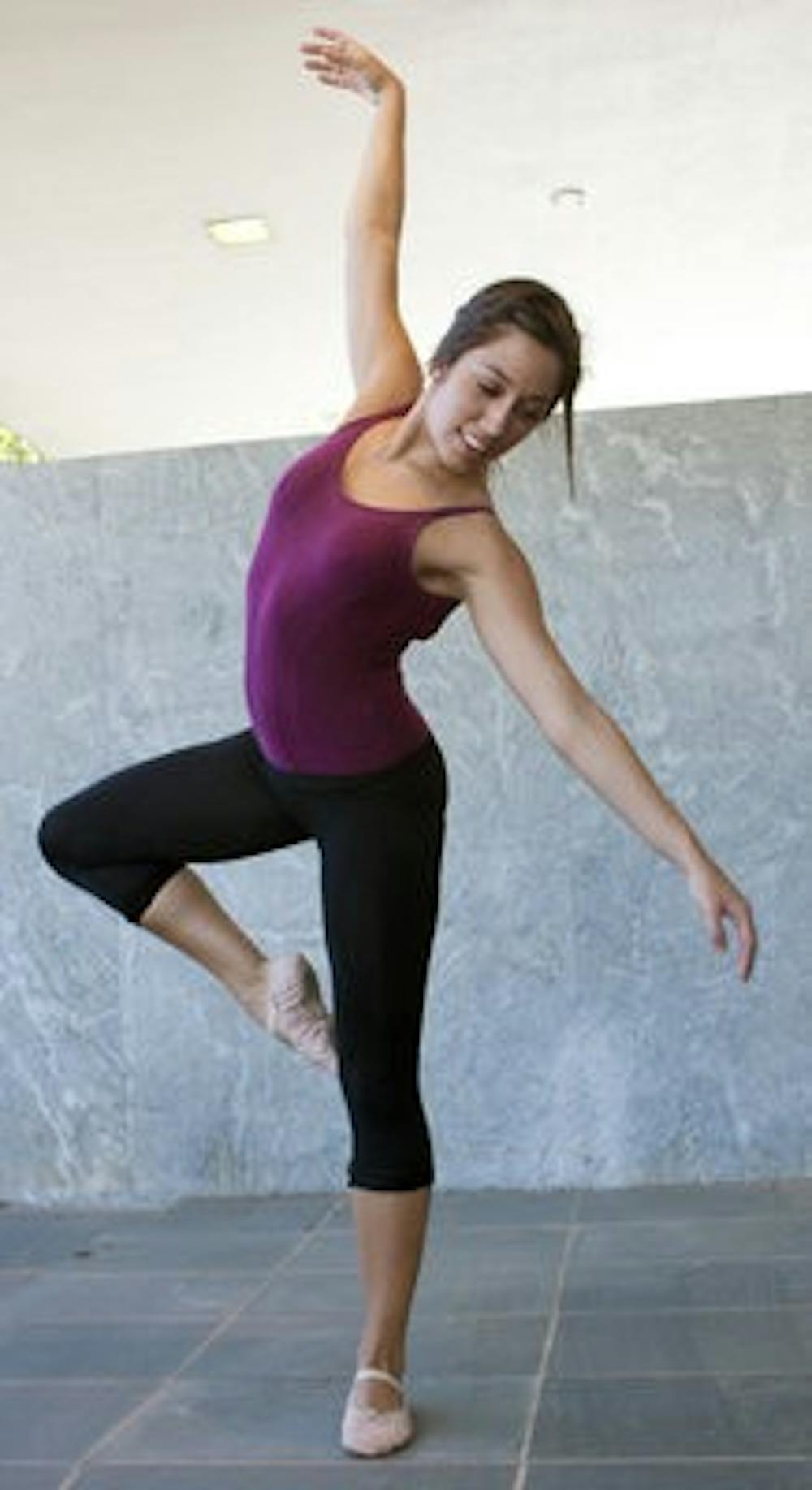"Black Swan" has become one of the most prestigious movies of 2010 because of its Oscar-winning actress and its portrayal of one of the dance world's biggest pressures: achieving perfection in auditions.
Natalie Portman's character as the tortured swan in the movie experiences both depression and self-harm to obtain the lead ballerina role.
While they may not have started shedding feathers like to physically become the black swan like in the film, many dancers still relate to the enormous pressures Portman's character faced.
After watching the film, Jordan Pease, junior in hotel and restaurant management, found similarities between herself and Portman's character.
"The main character experiences anxiety for striving perfection," Pease said. "And that's basically what the ballet world is centered around--like, the idea of a perfect body, perfect technique. And if you don't have it, you're not accepted."
Pease has been dancing ballet since fifth grade and attended high school at Alabama School of Fine Arts.
Pease said there was constant competition between the dancers, even when they were your own friends.
"In class, I would try not to stand next to my friends because I was comparing myself to them too much," Pease said. "I was focusing on what they were doing instead of myself."
Pease's teachers emphasized the importance of body image by measuring the dancers every semester for their body fat percentage.
"Girls go in the dressing room and ask each other, 'What percentage is your body fat?' And then girls start thinking, 'Oh, well, I should be that percentage too, so I should lose five pounds,'" Pease said.
During summer programs, Pease met dancers who starved themselves throughout the entire day, eating nothing more than a side salad.
Pease said the pressure to be in perfect shape and fit the mold of everyone else was just too much to handle for some of the dancers, sometimes including herself.
"Dance is supposed to be fun for me, but I let that build up into my head and take all the fun out of it," Pease said.
Anamaria Murphy, sophomore in history, is a dance minor who has participated in many auditions since she first began ballet at the age of 4.
She said she also understands the pressures dancers feel while auditioning for a role.
"Obviously in auditions you're stepping up your game because you wanna look better than the other person," Murphy said. "You are just sizing everyone up, like, 'They look good' or, 'They don't look good.'"
Murphy said from her experience many dancers enter auditions and immediately act like they are better than everyone else in the room.
"There are definitely some divas," Murphy said. "They never really go all out during auditions because they know they are that good. And they will just immediately go to the front (of the stage)."
This cutthroat attitude can be found even in elementary school dancers. At the age of 10, Murphy performed in her company's Nutcracker production in Atlanta and quickly learned about the measures girls will take to obtain the lead role. Many of the girls received extra assistance from their mothers.
"If your mom was involved in the company, you got better roles," Murphy said. "I hated it!"
Despite the extreme competitiveness she found in company dance, Murphy has continued to dance and finds the Auburn dance program much more laid-back because it only consists of a minor program.
Movies like "Black Swan" have caused ballet to receive more recognition by helping people to respect ballet for what it is, Pease said.
"It's a really hard art form to partake in and requires a lot of dedication," she said. "I think the movie showed the average Joe that there's a lot of more to it than they thought."
Do you like this story? The Plainsman doesn't accept money from tuition or student fees, and we don't charge a subscription fee. But you can donate to support The Plainsman.




